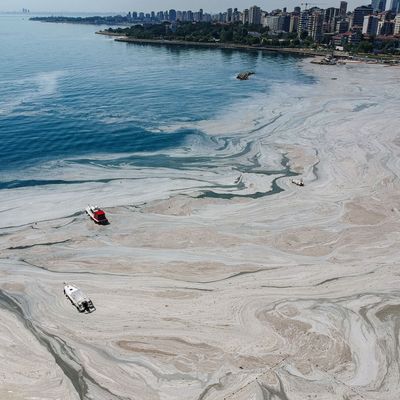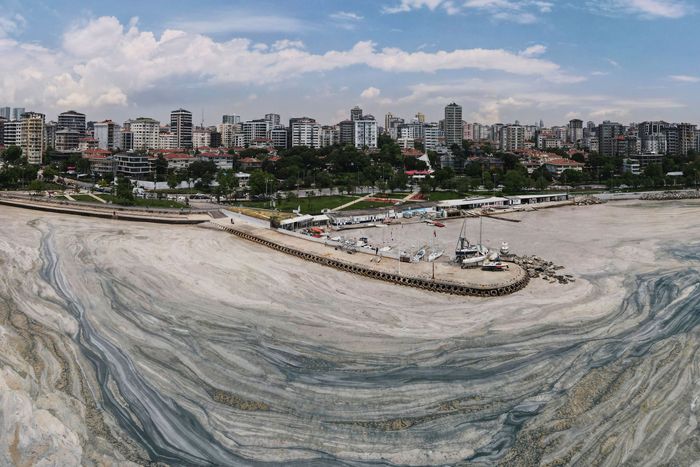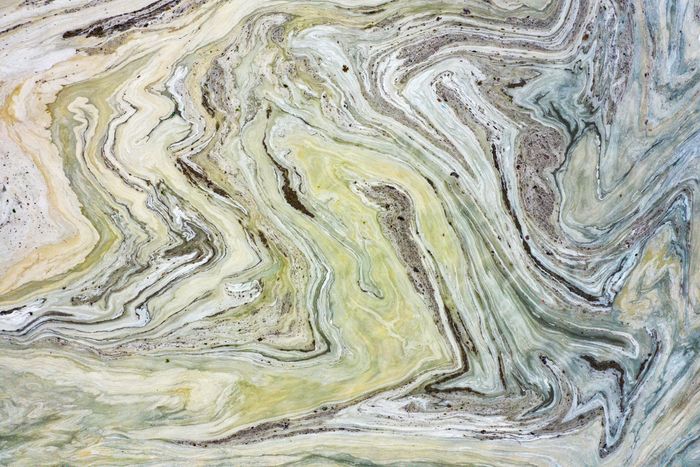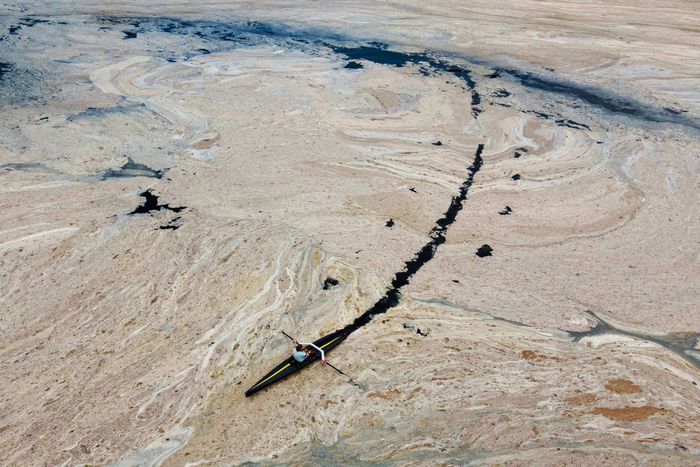
A thick, gloopy, jellylike blanket of “sea snot” is choking the Sea of Marmara in Turkey, posing a growing threat to marine life and the fishing industry.
For months, the slimy sludge has spread across the surface of the Marmara Sea and into the adjoining Black and Aegean Seas. Local fishermen are unable to work because they cannot operate motors or nets in the sludge, the BBC reports. Meanwhile, divers have reported a large number of fish and other species dying due to suffocation, and species like oysters, mussels, and sea stars are also under threat from the gelatinous film. According to Turkish daily Cumhuriyet, in April, marine researchers even spotted the mucus blanketing corals on the sea bottom 100 feet below the surface.
This isn’t a new phenomenon: The naturally occurring “marine mucilage,” as it is known scientifically, was first documented in Turkey in 2007, but the latest outbreak is thought to be the largest in history, according to the BBC.
Sea snot forms when algae are overloaded with nutrients due to rising sea temperatures as well as the discharge of untreated sewage into the sea. Phytoplankton thrive in warmer and nutrient-rich waters, and then discharge the snotty substance. Turkey’s President Erdogan blamed the current outbreak on untreated water being dumped from cities like Istanbul and vowed to “clear our seas from the mucilage scourge,” reports The Guardian.
On Sunday, Turkey’s environment minister Murat Kurum unveiled an action plan to designate the entire Marmara Sea as a protected area, reduce pollution, and improve treatment of wastewater from coastal cities and ships, Reuters reports. These measures aim to reduce nitrogen levels in the sea by 40 percent, a threshold scientists believe would help restore the waters to their previous state. He also said that starting this week, Turkey will undergo the biggest maritime cleanup operation in the country’s history and called on community members to help.
“Hopefully, together we will protect our Marmara within the framework of a disaster-management plan,” Kurum said in a press event on Sunday. “We will take all the necessary steps within three years and realize the projects that will save not only the present but also the future together.”
































